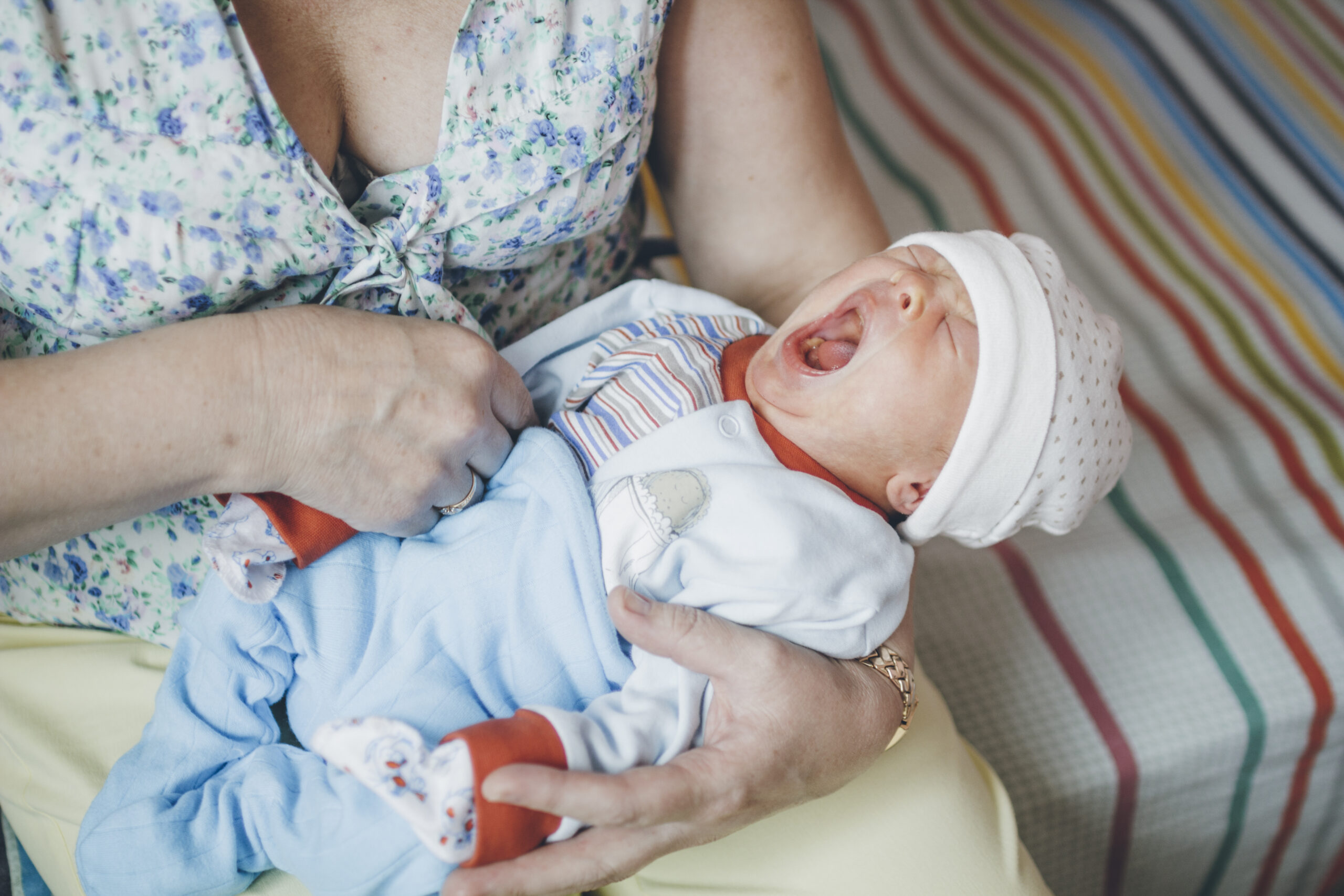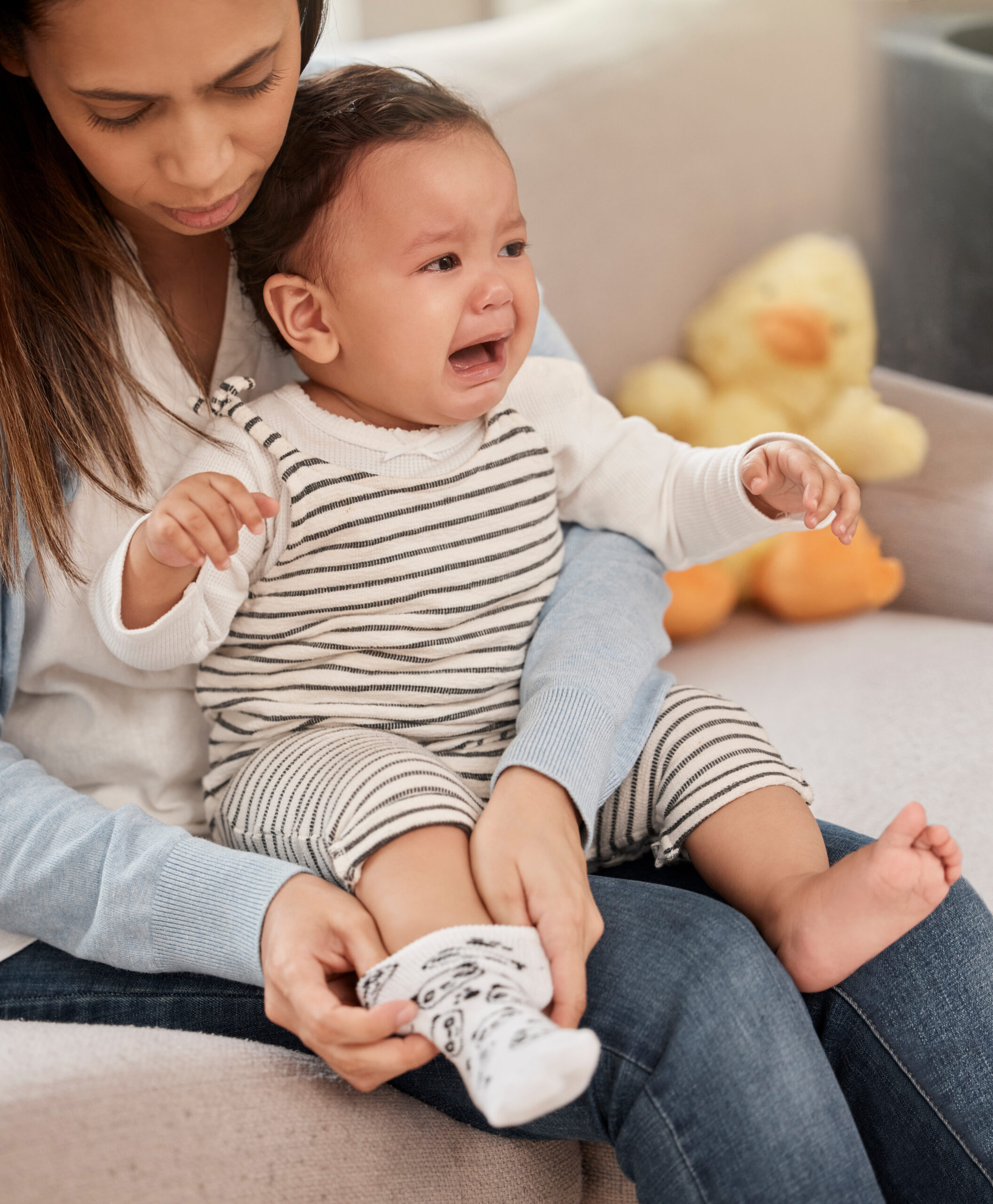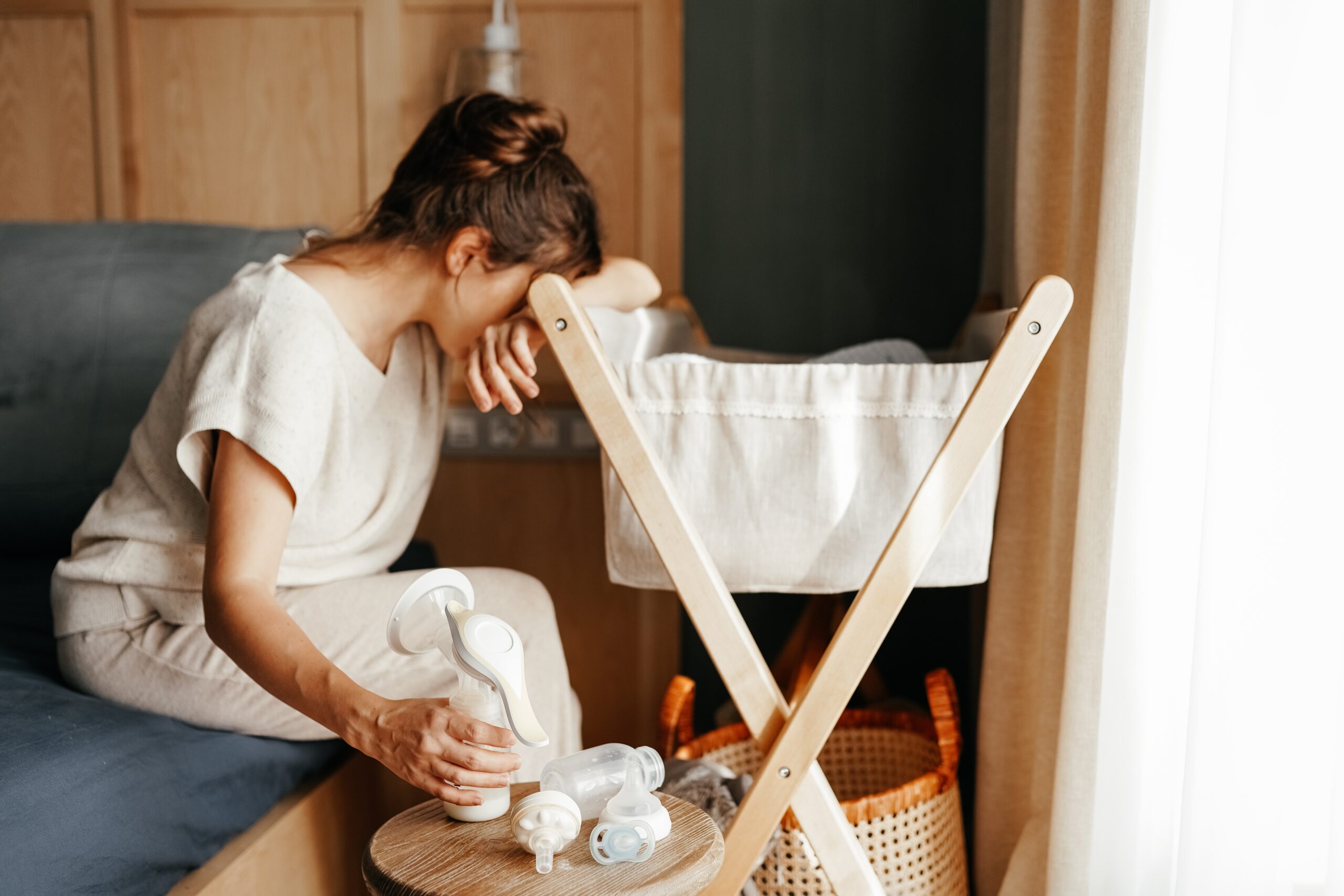Postpartum Depression, Self-Advocacy and Talking About Hard Things

Advocating for Mothers and A Better Understanding of Postpartum Depression
The first time we, as a society, really even had a public discussion about postpartum depression was in 2005 when Brooke Shields admitted to struggling with it, and Tom Cruise, very arrogantly said it was a made up condition. This was a strange and bizarre thing for any man to be commenting on, let alone Cruise. But this singular moment led to a conversation that was long overdue and far from being fully understood.
Since as far back as many of us GenXers can remember, its expected that a mom of a newborn is frazzled and fried, but we’re taught to power on and suck it up, chalking it up to the hurdles of new motherhood. And generations before us were told to put on a happy face, look pretty while doing it, and keep quiet about “feelings”. The expectations placed upon new mothers to appear poised was/is unrelenting. Decades later, moms are finally getting some recognition as those that bear the weight of the world and raise kids in the process. It’s a lot.
Now add hormones that accompany pregnancy and child birth, nursing and motherhood and what you have is a perfect storm that is worthy of protection. Part of keeping moms and babies safe in an increasingly fast world, blissfully unaware of how important mental health and rest is, is openly discussing deeper issues of said mother suffering from extreme fatigue or an unexplained sadness. Raising kids is already a tough job, but having to deal with postpartum depression on your own shouldn’t be. It’s time for mom’s to openly talk about it, support one another, and in the process have access to healthcare services that help in times of need. (Please read the personal stories at the end of this post shared by moms that had postpartum depression.)
According to recent studies at the University of Pittsburg Medical Center:
- Approximately 1 in every 7 women will get a perinatal mood or anxiety disorder like postpartum depression or anxiety.
- These illnesses are not normal, but they are very common. Seventy to 80 percent of new moms may feel depressed, anxious or even angry a few days after giving birth.
- These “baby blues,” as they are called, are normal and they usually go away within a week or so without treatment.
- For some women – more than 10 percent of mothers — postpartum depression (PPD) is a serious disease that can last a year after childbirth.
- It can interfere with a mother’s ability to take care of and bond with her baby, as well as harm the child’s development and safety.
- In rare cases, new mothers have harmed themselves and/or their babies.
The baby blues are not something to be taken lightly because it can be hiding a far more concerning condition of postpartum depression. Also known as PPD, this condition can last for years without treatment.
With the topic itself being taboo for centuries, it’s critical that new moms feel safe and comfortable talking about having symptoms, and if so, inform their healthcare provider. An open dialogue with your doctor can be the life-saving difference in a new mom’s life. Having the resources available to them ensures they can get help as soon as possible.
What is Postpartum Depression?
Postpartum depression is a type of depression that happens after having a baby. It affects up to 15% of people. People with postpartum depression experience emotional highs and lows, frequent crying, fatigue, guilt, anxiety and may have trouble caring for their baby. Postpartum depression can be treated with medication and counseling. (Cleveland Clinic)
When Does Postpartum Depression Typically Start?
The postpartum period is considered the six weeks after childbirth. During this period, we’d all like to believe that bringing home a newborn is all about cuddles and giggles, but the truth is more complex. Postpartum depression can occur during pregnancy, can develop as early as the first two weeks after childbirth— or — it can occur within six months to a year, post-delivery.
How Long Do Postpartum Hormones Last?
The baby blues are common, with 50 to 85 percent of women experiencing it in some form or fashion. However, those traditional blues fade away a few weeks after childbirth, once the mother adjusts to new routines and hormones begin leveling off. It’s important to note that postpartum hormones remain within a woman’s body from 6 weeks to a year, depending on her physiological status and whether or not she breastfeeds.
How Postpartum Depression Can Affect Your Life
In postpartum depression, the first thing that must be said is it is a condition that is no one’s fault. In no way is a woman to blame for having postpartum depression. When a woman is diagnosed with PPD, the brain is affected, changing how a woman thinks, feels, and behaves. This condition can keep a mom from caring for her baby, taking care of herself, and leading to harmful behaviors.
Postpartum depression statistics state that about 1 in 7 women experience the condition, estimating about 600,000 women are affected by PPD annually. When those same statistics include others who experienced a stillbirth or miscarriage, those numbers increase to 900,000.

What are the Symptoms of Postpartum Depression?
The signs and symptoms of postpartum depression are different from person to person and can change daily. A woman’s hormones are suddenly re-adjusting to a body without a baby, and the hormonal upheaval can cause intense emotions, especially sadness. But when the baby blues last longer than two weeks, or sadness feels more like despair, a woman might be experiencing signs of postpartum depression instead.
Symptoms usually begin within a few weeks or more after giving birth, but some women don’t have symptoms until many months later. Getting assessed and receiving treatment for postpartum depression is a necessity because, without treatment, the condition may worsen.
Here are a few common symptoms of postpartum depression.
- Feeling disconnected from the baby.
- Sudden mood changes.
- Feeling extreme fatigue, but may also experience insomnia.
- Feeling unexplainable aches and pains.
- Feeling anxious.
- Feeling sadness and despair.
- Crying often, perhaps without an identifiable reason.
- Sleeping too much.
- Difficulty concentrating and finishing tasks.
- Difficulty making decisions, even easy ones.
- Eating too much or too little.
- Difficulty remembering things.
- Feeling out of control or “not all there.”
- Finding no interest in things that were once enjoyable.
- Feeling numb or emotionless.
- Withdrawal from family and friends.
- Wanting to escape from life.
- Unable to complete basic tasks, such as grooming oneself or the baby.
- Feeling worthless, ashamed, or guilty.
- Having persistent thoughts of being a bad mother.
- Thinking other people will take or harm the baby.
- Having intrusive thoughts about harming oneself, the baby, or other people.

Who Is At Risk for Postpartum Depression?
According to the U.S Government’s Office on Women’s Health, the following risk factors make it more likely that a woman will develop postpartum depression after childbirth.
- Having a family member with a history of bipolar disorder or depression.
- History of depression.
- A lack of support from friends and family.
- Having had a challenging pregnancy or childbirth.
- Younger than 20.
- Having a baby with special needs.
- Having twins or multiples.
- Experiencing money or marital problems.
- Misusing or abusing drugs or alcohol.
- The baby was an unplanned pregnancy.
I had postpartum depression but didn't realize that's what it was. I thought I was just overly tired and hormonal because my baby was suffering with colic, it was my first, and I didn't have family nearby to help. Turns out it was PPD.
Dawn Garcia, Mom + Series Creator
How is Postpartum Depression Diagnosed and Treated?
Part of the procedure for diagnosing postpartum depression includes a thorough physical exam, including lab tests. A physical exam rules out any other diseases or disorders that may carry the same symptoms of postpartum depression, like a thyroid condition. A physician or therapist will also perform a depression screening, asking questions that help determine an accurate diagnosis.
Treatment for postpartum depression may differ from person to person. Most often, however, a combination of psychotherapy (talk therapy) and medication are effective at treating PPD. Receiving treatment for postpartum depression is vital and it should be readily available for all mothers.
How Long Can Postpartum Depression Last?
Current research indicates that in some cases, postpartum depression can last for years if left untreated. One study published in 2020 by Dr. Diane Putnick of NIH’s Eunice Kennedy Shriver National Institute of Child Health and Human Development (NICHD) found that postpartum depression could be categorized into four trajectories, with most women showing low levels of depression over time. Researchers have found many differences in symptoms between individual women, as well as how early it starts and how long it lasts.
Dr. Putnick clarifies that postpartum depression isn’t the same for everyone.
“To better understand the different trajectories for postpartum depression, Dr. Putnick used data from a study that tracked more than 4,500 women and their children for 3 years after birth.
The study asked women about symptoms of postpartum depression 4 months and 1, 2, and 3 years after birth. The researchers also looked at factors that might influence the length or severity of postpartum depression. These included age, race, education, marital status, gestational diabetes or high blood pressure, and preexisting mental health conditions. Results were published on November 1, 2020, in Pediatrics.
The women’s experiences with postpartum depression fell into four main trajectories. In the most common, women had levels of symptoms that remained low over time. Almost three-quarters of the participants fell into this category.
A second group, making up 8% of participants, had low levels of symptoms at four months after birth that grew worse over time. Another 13% had moderate symptoms that decreased over time. And about 5% experienced high levels of depressive symptoms that stayed higher than the other groups, even years after giving birth in some women.
Women with a previous mood disorder diagnosis and those who experienced gestational diabetes were the most likely to fall into the group with persistently high symptoms. Women with persistently high symptoms were also more likely to be younger and have less education.
More work is needed to better understand the factors that influence the trajectory of postpartum depression for different women. Improved screening could eventually help doctors identify more women who are struggling with the condition.”
In short, postpartum depression may last anywhere from four months after giving birth to years afterward. And without treatment, postpartum depression can worsen over time.
“Our study indicates that six months may not be long enough to gauge depressive symptoms,” Putnick says. “These long-term data are key to improving our understanding of mom’s mental health, which we know is critical to her child’s well-being and development.”
Psychotherapy for Postpartum Depression
Psychotherapy, also known as counseling or talk therapy, provides a safe and accepting space to share concerns about motherhood (and life in general). Talk therapy is a highly effective modality to create a place where you can talk freely and without judgment, gain more insight into yourself and the external factors affecting quality of life, develop skills to assist you in times of stress or distress, and offer more constructive and positive approaches that can be applied to all aspects of life, motherhood, relationships, family, and work.
Medications for Postpartum Depression
Like all things related to mental health, there is zero shame in turning to medications prescribed by a trusted physician. With so many continued advances in medicine, and in particular the field of mental health, your doctor may prescribe something to balance out the hormonal and chemical imbalance that causes postpartum depression. Typically, clinicians prescribe antidepressants (SSRI’s) to treat symptoms relating to depression and anxiety. However, because some women breastfeed, physicians are careful to prescribe medications that won’t impact milk supply. In the cases where medications may affect breastfeeding, physicians will work with women to find the safest forms of treatments.

When To Contact A Doctor For Postpartum Depression
For women going through postpartum depression, it might be challenging to identify the condition on our own, mainly because we’ve been societally conditioned not to express those things. But that’s a huge part of the problem. Sadly, that means that more often than not, it’s the people around them to notice that something isn’t okay. Moms need and deserve to have a supportive and caring environment — and people who can encourage them to seek treatment.
Moms can also speak with their OBGYN or baby’s pediatrician about their concerns, seek out referrals, and inevitably seek proper treatment. Obstetricians and pediatricians are familiar with postpartum depression and are readily available to talk about and offer systems of additional support.
Finding the Right Provider for Postpartum Depression
If you think you or a loved one has signs of postpartum depression and you have questions about finding the right provider for you, United States of Healthcare is happy to help. Download our free provider tool or check out our healthcare resources to determine which healthcare provider is right for you.
And if you have an experience you’d like to share about treatment for postpartum depression and navigating the healthcare system, please share. Let’s help each other navigate the healthcare system.
When To Seek Emergency Help
If a woman has thoughts of harming herself, the baby, or other people, it’s considered an emergency. If possible, please reach out to your partner, family, or a trusted friend, and know that your best recourse may be to call 911 and get the help you need.
For any mom reading this who needs to know you’re not alone, below are a few stories from moms who went through it too. I kept their names anonymous because support means feeling safe enough to open up and share:
“I had my twin boys in May of 2007. They arrived 6 weeks early due to a pregnancy complication, a condition called HELLP Syndrome (my blood wasn’t clotting and my liver was failing). I had the boys via emergency C-section under general anesthesia (they couldn’t give me an epidural because I would have bled out). Boys were mostly OK, but spent 2 weeks in the NICU before they could go home. My recovery was a bit problematic due to HELLP – I was anemic and had fluid in my lungs, among other things.
To help with my recovery, I was put in high-risk postpartum unit where I had my own nurse 24/7. I also had to have blood transfusion to help bring my blood platelet count up and to help with anemia. I was discharged 4 days after giving birth, but with my boys still being in the NICU, all I wanted was to stay in the hospital to be closer to them. Since I couldn’t do that, I had to drive back and forth to visit them and to attempt to start nursing (I was given Percocet for pain management post-surgery, but since I couldn’t nurse or drive while taking it, I only ended up taking it for a day and then stopped). I had to use the breast pump while still at the hospital to get my milk to come in, since one of the reasons my boys had to stay in the NICU was that they had to figure out the whole suck/swallow/breathe thing and couldn’t just nurse on their own quite yet. They were fed premie formula from the get-go through the tubes.
My milk did start coming in, but I had to pump and then whatever I had, we would give the boys using the tiny bottles in the NICU. My traumatic delivery, the boys’ prematurity, and my difficult postpartum recovery resulted in me not producing enough milk, especially for twins. I immediately started drinking Mother’s Milk tea and altered my diet to help with milk production and it still wasn’t enough. During my first follow-up appointment with my OBGYN (when they took out staples out of my c-section incision, I think), I addressed my difficulty with producing enough milk. That’s when she prescribed a medication to me to help with my milk production.
The medication was called Reglan. I started taking it right away and I think my milk supply increased, but it was never drastic and it was still not enough to feed two, so we continued to supplement with formula. I didn’t realize that anything was wrong with how I felt or recognize the symptoms of PPD until probably a month or so after giving birth… and even then I couldn’t put a name to what was going on, just knew something wasn’t right. I was the happiest pregnant person on the planet (like freakishly happy) and had an amazing, easy pregnancy, and considering it was twins, I felt so lucky to finally be pregnant (we tried for a long time and did one round of IVF to finally get our miracle boys) and felt really good for most of my pregnancy… until that pesky HELLP Syndrome complication at the very end (and the resulting early delivery). So the reason I suspected something was wrong about a month in was the fact that I felt completely opposite from the delirious happiness I felt during my pregnancy.
I was crying all the time, didn’t really feel that “magical bond” with my babies, was exhausted (which is obviously normal), but couldn’t really sleep well. Thankfully my mom was staying with us during that time, she was a life saver, but she also was the one who said that what was happening with me was more than just normal “baby blues”. Boys were home after only needing two weeks in the NICU, they were healthy and generally thriving. But I was miserable… And even after my mom told me that something more than just new parent exhaustion/sleep deprivation/baby blues was going on, I just kept thinking it would go away once I got a little bit more sleep at night, once we get the feeding schedule figured out, more regular naps, etc. But what finally got me to act on it was the realization that my mom was going to leave in a couple of weeks (my parents live in Boston) and I had absolutely NO clue how I was going to manage without her.
My husband was super helpful and involved, but he also had to go to work during the day. We also found out that one of our boys was born with a condition (common in twins) that could impact his muscle development from the neck down and that he would require physical therapy multiple times a week starting at 3 months. I couldn’t fathom doing it all on my own, not the way I was feeling. I finally asked my OBGYN for a referral to a therapist. My first therapy session was probably 2.5 months postpartum. I broke down crying within the first 10 minutes just telling her about how I felt and about the boys’ traumatic arrival, my complications, etc.
When we got to the subject of breastfeeding, she asked me right away if I took any supplements for milk production since I was nursing twins. I told her that I was still taking Reglan. She was stunned that I was still on it, 2.5 months later. She said that I was only supposed to be on it for 3-4 weeks and that she heard of some new studies that suggested that Reglan might be a contributing factor in postpartum depression. I asked her why wouldn’t my OBGYN know about this (she gave me like a 6-month prescription) and she responded that these findings about Reglan were fairly recent. She told me to stop taking Reglan right away and to let me know if I felt any changes at our next session.
I stopped taking the medication and felt the effects almost immediately, definitely within 24 hours!
It felt like I was walking in a fog and some of that fog suddenly lifted. At my next therapy session I told my therapist about the sudden improvement and she was very relieved. She still wanted to see me, but she said that, in her view, I had a mild case of postpartum depression (I certainly didn’t feel like it was mild!) and that she felt that she could help me without having to prescribe antidepressants since I was still nursing. I ended up only having a total of 5 therapy sessions because my mom left only a couple of weeks later and I had to dive into my mommy role full time. Plus, my son’s physical therapy appointments started right around the same time and I couldn’t fit any more appointments into our schedule. I thought for sure that we would have to hire a nanny once my mom left, but I kinda ended up figuring it out and doing it on my own… until my husband came home from work (those last 2 hours before he got home felt endless… I was so grateful when he was finally home!).” — Mom J.


